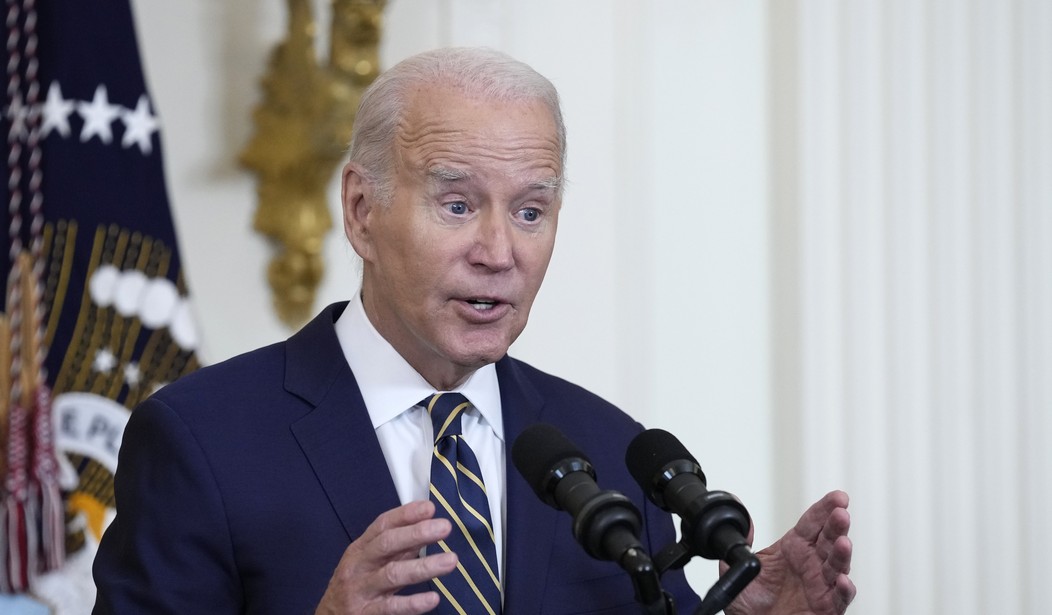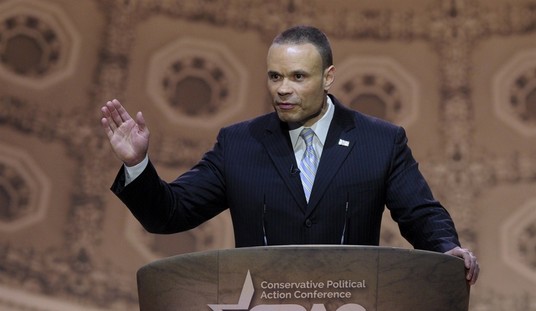The Biden Administration’s messengers continually attempt to put a good face on nation’s ongoing cyber crisis, like when they trotted out First Lady Dr. Jill Biden this week to kick off the White House’s back-to-school cyber safety summit. But the truth is, cybersecurity is just another major issue where America is lagging under the stewardship of President Joe Biden.
As of Dec of 2022, far past the point where democrat spin doctors could blame former President Trump, there was a labor shortage of cyber personnel to the tune of approximately 700,000.
America being understaffed in the cyber profession poses significant dangers and vulnerabilities in both the public and private sectors. In today's interconnected world, cyber threats continuously evolve, and the demand for skilled cybersecurity professionals has never been higher. A shortage of sufficient cybersecurity staffers poses severe consequences for national security and the protection of sensitive information.
In the public sector, under the incompetent leadership of Alejandro Mayorkas at the head of the Department of Homeland Security (DHS), federal and state level agencies and critical infrastructure face an array of cyber threats from state-sponsored actors, hacktivists, and cybercriminals.
The Cybersecurity and Infrastructure Security Agency (CISA), which is a sub-agency under DHS, has spent more than enough taxpayer money over the past 2 and a half years to have made major strides in the cybersphere, but the positive results just aren’t there about two-thirds of the way through Joe Biden’s current term.
Just a few weeks ago, there was a joint cybersecurity advisory from (CISA), the FBI, the Multi-State Information Sharing and Analysis Center (MS-ISAC), and the Canadian Centre
Recommended
for Cyber Security (CCCS), regarding the spike in variations of Truebot malware, a botnet that has been used often by Russia-based cyber gangs like CLOP.
In Addition, China was just reported to be the origin of an attack that led to the breach of an email account belonging to the US Ambassador to China, Nicholas Burns, as a part of a larger targeted intelligence-gathering initiative.
Without adequate cybersecurity personnel, government agencies will continue to struggle to respond to hacking events effectively. This is sure to lead to data breaches, disruption of essential services, and other major threats to national security. Additionally, the loss of sensitive government data may disrupt diplomatic relations or intelligence operations.
Among private sector entities, businesses across various industries continue to be targeted by hackers seeking to steal valuable intellectual property, consumer data, and financial information. These sorts of breaches have been executed with increasing frequency by countries like China, Iran, North Korea, and Russia.
An understaffed private sector will suffer through slower incident response times, leaving them exposed to prolonged hacks. The resulting breaches will likely result in larger financial losses, reputational damage, and legal liabilities.
Moreover, the interconnectedness of private and public sectors makes them interdependent. Hacks that target private companies have ripple effects on the nation's critical infrastructure and public services, including energy, transportation, and healthcare.
This underscores the importance of having a deep cybersecurity workforce in both the government and private sectors, as they can more effectively collaborate to defend against cyber threats effectively.
In order to address these challenges, America must invest in robust cybersecurity education, training, and recruitment initiatives. One program that hopes to achieve this is Florida International University's cybersecurity workforce training program. The program provides free cyber training to the nation's veterans and first responders.
We should also encourage students to pursue careers in cyber fields starting at a younger age and launch a consistent plan for doing so year-round, and not just trotting out the Jill Biden’s of the world for short speeches and dedicating just one week out of the year for awareness. This, in addition to offering more competitive salaries and benefits packages will attract the talent needed to fill critical cybersecurity roles.
The extended understaffing epidemic in the cybersecurity sector poses significant risks for America, leaving her vulnerable to cyber threats on multiple fronts. At this point, a substantially bigger commitment must be made towards building a skilled and well-equipped cybersecurity workforce.
Should we do so, it hopefully strengthens our cyber defenses, protects sensitive data, safeguard national interests, and establishes a resilient and secure digital landscape. Whether or not Biden and his cabinet are up to that task remains to be seen.
Julio Rivera is a business and political strategist, cybersecurity researcher, Editorial Director for Reactionary Times, and a political commentator and columnist. His writing, which is focused on cybersecurity and politics, has been published by many of the most respected news organizations in the world.

























Join the conversation as a VIP Member